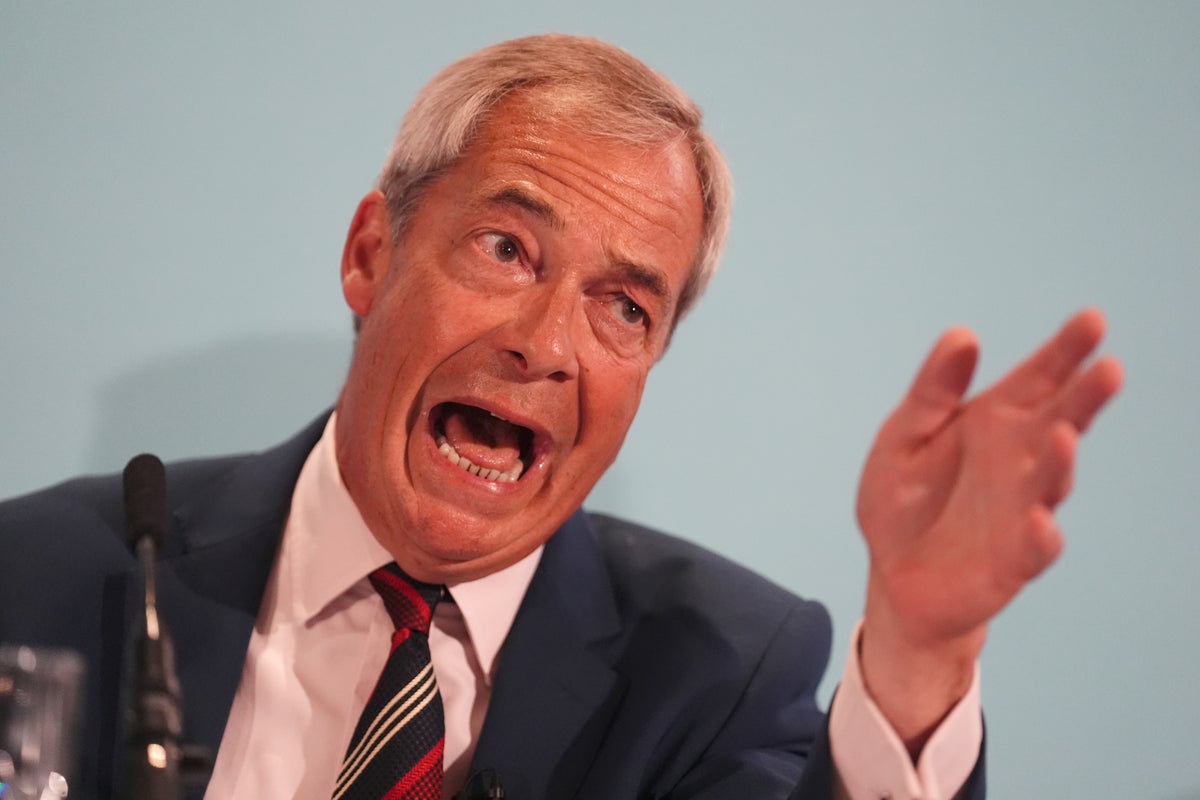Three members of Donald Trump’s cabinet will meet with Chinese officials in London on Monday in an effort to deescalate or resolve the unprovoked trade war which Trump started with Beijing two months ago.
In a post on Truth Social, Trump said he was “pleased to announce” that Treasury Secretary Scott Bessent and Commerce Secretary Lutnick would travel to London along with U.S. Trade Representative Jameson Greer for a sit-down with “Representatives of China, with reference to the Trade Deal.”
He added: “The meeting should go very well. Thank you for your attention to this matter!”
The president’s announcement of yet more trade talks between Washington and Beijing comes just a day after a 90-minute phone call with Chinese president Xi Jinping, which Trump described as a “very good” discussion of “some of the intricacies of our recently made, and agreed to, Trade Deal.”
A day earlier, he had complained that Xi was “VERY TOUGH, AND EXTREMELY HARD TO MAKE A DEAL WITH” in a separate Truth Social post which was made as he was reportedly pushing for a leader-to-leader call with his Chinese counterpart.
Last month, Trump cut the tariffs he’d imposed on Chinese imports from a whopping 154 percent to 30 percent after Bessent and Greer met with Chinese negotiators in Switzerland to deescalate the trade war the president had kicked off on April 2, the day he declared “Liberation Day” to mark his decision to unilaterally tax American imports of goods from nearly every nation on earth.
Trump and other administration officials have been frustrated by what they describe as China’s failure to relax restrictions on the export of rare earth metals, which are used in manufacturing for advanced electric motors and other electronic products, including those with military applications, while China’s government has bristled at a recent decision by the U.S. to impose export controls that will prevent American companies from selling Chinese buyers software used for semiconductor design, and by plans announced by Secretary of State Marco Rubio to to “aggressively revoke visas for Chinese students” who are studying in the U.S.
The meeting between American and Chinese negotiators will take place amid continued uncertainty as to the viability of Trump’s expansive use of tariffs as a Swiss Army knife-type policy instrument under emergency powers he has claimed using a decades-old law, the International Emergency Economic Powers Act.
Last month, a three-judge panel of the U.S. Court of International Trade ruled that President Donald Trump “exceeded his authority” when he imposed his so-called “Liberation Day” tariffs on April 2. The court also struck down the tariffs Trump imposed on Mexican, Canadian and Chinese imports with the stated aim of combatting fentanyl and drug trafficking from those countries.
That decision was put on hold by an appeals court while arguments play out in the case, but Trump and his allies are making plans to use other, more well-defined authorities to continue his use of import taxes as a way of driving manufacturing to return to American shores after decades of globalization and integration of supply chains.
White House officials have been plumbing the depths of the U.S. legal code to find ways to get around judicial orders and carry out the president’s plans despite the rulings of what they call have labeled the “rogue judges’ that have repeatedly ruled against Trump.
Trump and his advisers are understood to be looking at invoking a never-before-used section of the 1974 Trade Act known as Section 122, which allows for a 15-percent tariff to be placed on imports for up to 150 days, in order to deal with trade imbalances with other countries.
During that period, the White House would then start the process to impose alternative tariffs on individual countries’ exports under Section 301 of the same 1974 law.
Trump used Section 301 on multiple occasions during his first term to impose tariffs on some Chinese steel and aluminum imports, but using that authority takes time because it requires a notice-and-comment period.
It’s unclear whether the White House will seek to employ either of those alternate strategies while the case against Trump’s “Liberation Day” tariffs proceeds. Doing so might be seen by the appeals court — or the Supreme Court — as a concession that the Court for International Trade’s decision was, in fact, correct.
More follows…



